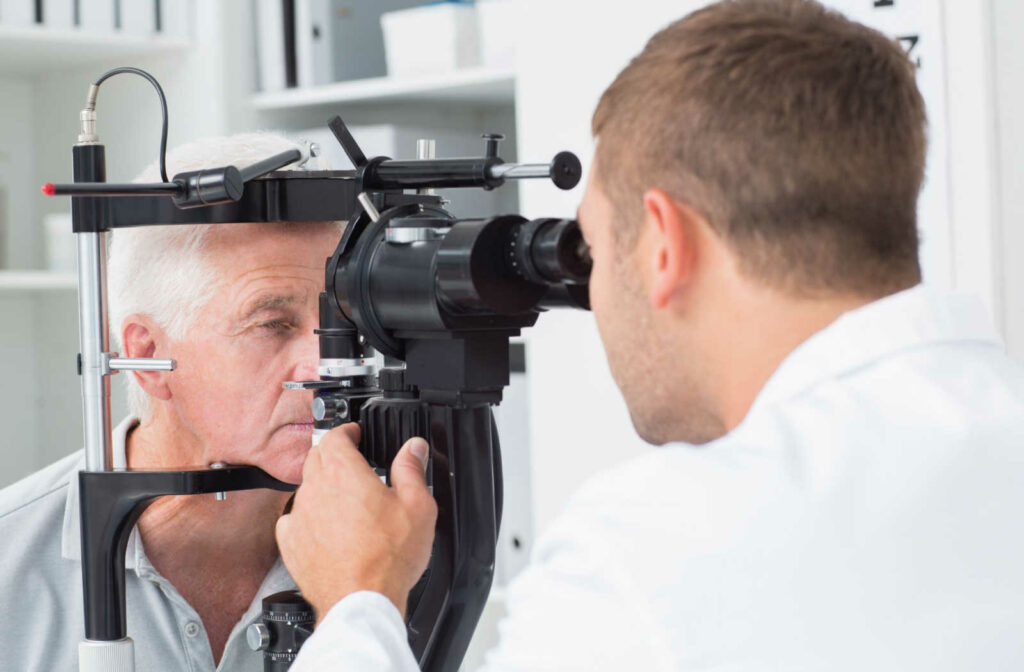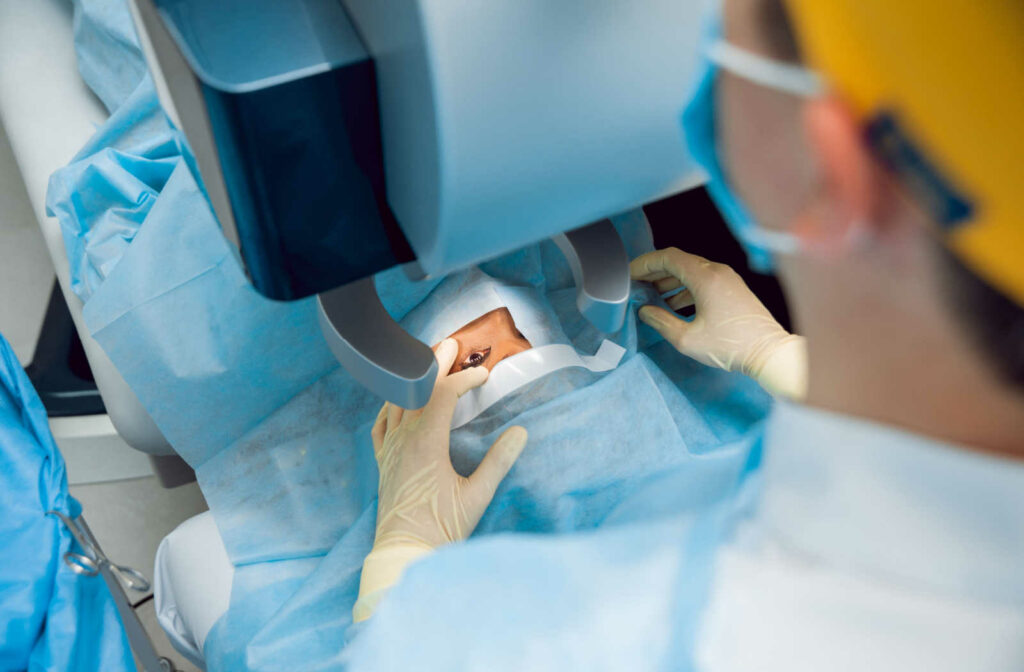Reviewed By: George Brinnig, M.D., Ph.D.
Vision care starts with consistency, and visiting your optometrist for regular eye exams can help ensure you’re enjoying optimal vision. Your optometrist can also check for the development of eye diseases such as cataracts.
When cataracts advance to a stage where they begin preventing you from activities of daily life such as reading or driving, surgery is the only option to remove them.
Let’s look at what cataracts are, their symptoms, the surgery process, and how long the recovery time post-surgery is.
What Are Cataracts?
A cataract occurs when the normally clear lens of the eye becomes clouded. This clouding of the lens results from proteins in the eye forming clumps that prevent the lens from sending clear images to the retina.
The retina converts the light that comes through the lens into signals and sends these signals to the optic nerve, which carries them to the brain.
Cataracts are common in older people, and over half of people in the United States have cataracts or have had cataract surgery by the time they’re 80 years old.
Some common symptoms of cataracts include:
- Blurry vision
- Double vision in the affected eye
- Trouble seeing at night
- Increased sensitivity to glare
Cataracts can sometimes have underlying causes that make you more susceptible to developing them. Some underlying causes of cataracts can include:
- Ultraviolet radiation
- Certain diseases, such as diabetes
- Smoking
- Trauma to the eyes
- Long-term use of steroids and other medications
A comprehensive eye examination can help check for cataracts and assess your overall vision. When cataracts prevent you from going about daily activities, like reading or driving, surgery is the only option to remove them.

The Cataract Surgery Process
Cataract removal is a surgical procedure to remove the eye’s cloudy lens and replace it with an artificial intraocular lens.
Before the surgery, your doctor will take the necessary measurements to determine the focusing power of your new artificial lens.
Cataract surgery is an outpatient procedure and takes only minutes per eye. There are 2 main methods of cataract surgery:
- Phacoemulsification— involves using an ultrasound probe to break up the lens for removal.
- Extracapsular cataract extraction—involves making an incision in the eye and removing the lens in one piece.
Your doctor can determine the best method for your unique vision needs. Once the cataract has been removed, the artificial lens is inserted.
Recovery Time for Cataract Surgery
Following cataract surgery, you can expect your vision to be blurry at first as your eye heals and adjusts. Still, your vision will begin improving over a few days.
It can take time to adjust to colors appearing brighter because you are looking through a clear lens. Follow-up appointments will be scheduled with your eye doctor throughout the month following surgery.
Some itchiness and mild discomfort are also expected for 2 to 3 days following surgery, and it’s essential to avoid rubbing or pushing on your eye. Complete healing often occurs within 8 weeks, and some patients may require glasses between 1 to 3 months following surgery.
It’s essential to contact your doctor if you experience any of the following during the healing process:
- Eyelid swelling
- Vision loss
- Increased eye redness
- Light flashes or multiple new floaters in front of your eye
- Pain that persists
If you have cataracts in both eyes, your doctor will usually schedule separate surgeries. The healing timeline for each eye follows a similar pattern barring any setbacks.
Restore the Vision of Your Youth
Cataract surgery is considered a very safe procedure and is an excellent option to help restore your vision. Your doctor will walk you through the procedure and ensure you’re informed throughout the process. Contact your eye doctor today to learn more about cataracts and see if cataract surgery is a good option for you.



